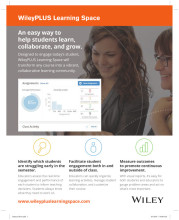The nature of qualitative research - Reliability and validity in qualitative research
5 important questions on The nature of qualitative research - Reliability and validity in qualitative research
How adapt reliability and validity for qualitative research according to LeCompte and Goetz?
Dependability
• Internal reliability - whether, when there is more than one observer, members of the research team agree about what they see and hear (inter-observer-consistency)
Confirmability
• Internal validity - whether there is a good match between researchers' observations and the theoretical ideas they develop. Congruence between concepts and data
Credibility
• External validity - the degree to which findings can be generalized across social settings
What criteria should be used when evaluating qualitative studies according to Lincoln and Guba?
- Credibility (parallels internal validity).
- respondent validation - process whereby the researcher provide the people on whom they have conducted research with an account of their findings
- Triangulation:
- Transferability (parallels external validity) encouraged to use the thick description by Geertz
- Dependability (parallels reliability)
- Confirmability (parallels internal reliability)
What are the main preoccupations of qualitative researchers?
Interpretivism, Weber’s Verstehen
Face-to-face-interaction, “take the role of the other” (Lofland and Lofland, 1995:16), risk of ‘going native’
Description and the emphasis on context
Geertz (1973): thick description of social settings, events
Emphasis on process
Ethnographers are immersed in a setting for a long time
Importance of processes, organizational changes
Flexibility and limited structure
Blumer’s sensitizing concepts (1954) (not definitive)
Concepts and theory grounded in data (grounded theory)
- Higher grades + faster learning
- Never study anything twice
- 100% sure, 100% understanding
What are approaches that enable the researcher subjects to play a more active part in designing the research and to influence the outcomes?
- Action research
- Collaborative and participatory research
What is collaborative & participatory research?
Ex.: in-depth interviews with the employees and management of a certain company
Bolton, Pole and Mintzen (2001:510): “the shape and meaning of child employment in Britain today from the point of view of the children themselves”
Assumption that practical outcomes are more important than theoretical understanding
Can be seen as a form of respondent validation
The question on the page originate from the summary of the following study material:
- A unique study and practice tool
- Never study anything twice again
- Get the grades you hope for
- 100% sure, 100% understanding































